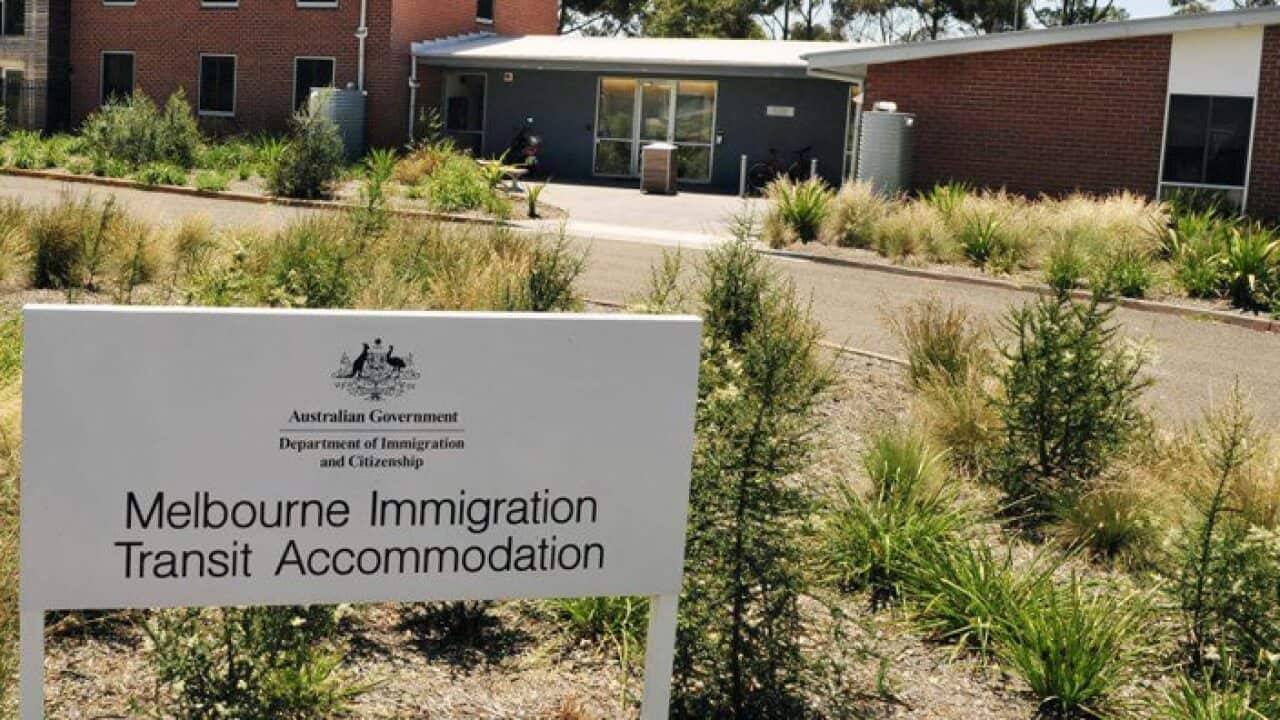Fourteen asylum seekers brought to Australia under the now-repealed Medevac legislation have begun a hunger strike in a bid to draw attention to their ongoing detention.
The detainees are in Melbourne Immigration Transit Accommodation after being transferred to the mainland from Manus Island and Nauru for medical treatment.
The strike began on Thursday and is now entering its fourth day, according to a spokesperson from the Refugee Action Coalition.
A detainee participating in the strike who has been in immigration detention in Nauru and Melbourne for close to nine years told SBS News the strike was a protest against what they see as indefinite detention.
“We came here for Medevac … and we are still here, stuck in detention for nothing,” he said.
“We need to have an answer, why are we stuck here? If you don’t really want me, if you don’t want us, send back, I don’t know, somewhere. It’s enough.”
An Australian Border Force spokesperson said they were aware that a small number of detainees at the facility were engaging in a “peaceful demonstration by refusing to attend meal services”.
“In addition to the twice-daily catered meal services, detainees have access to all day self-catered meals and a canteen service,” they said in a statement on Monday.
“Facility Detention Service Providers are engaging with the detainees and there are no concerns for their health, safety, or welfare.”
Earlier this year, dozens of refugees who were transferred to Australia for medical treatment were released from onshore detention and granted six-month bridging visas to live in the community.
They were among a cohort of 192 people transferred under the so-called Medevac laws, which were passed in February 2019 before being repealed 11 months later.
At the time, then-Home Affairs Minister Peter Dutton said the decision to release the group of men came down to cost-cutting.
“It’s cheaper for people to be in the community than it is to be at a hotel, or for us to be paying for them to be in detention,” he told 2GB radio host Ray Hadley.
“If they are demonstrated not to be a threat, or that’s the assessment that has been made by the experts, then it is cheaper for them to go out into the community until they can depart.”
In 2019-20, the average cost of keeping a single person in immigration detention was $362,000 per year. By comparison, it costs the government an estimated $4,429 per year to support a person on a bridging visa in the community, the government revealed in Senate Estimates.
The Department of Home Affairs has repeatedly said no one who has attempted to seek asylum in Australia by boat will be permanently settled.
“All the Medevac refugees must be released,” said Ian Rintoul, a spokesperson for the Refugee Action Coalition.
“After detention on Manus and Nauru, and two years of detention in Australia, every day in detention worsens their mental distress. They need freedom.”

